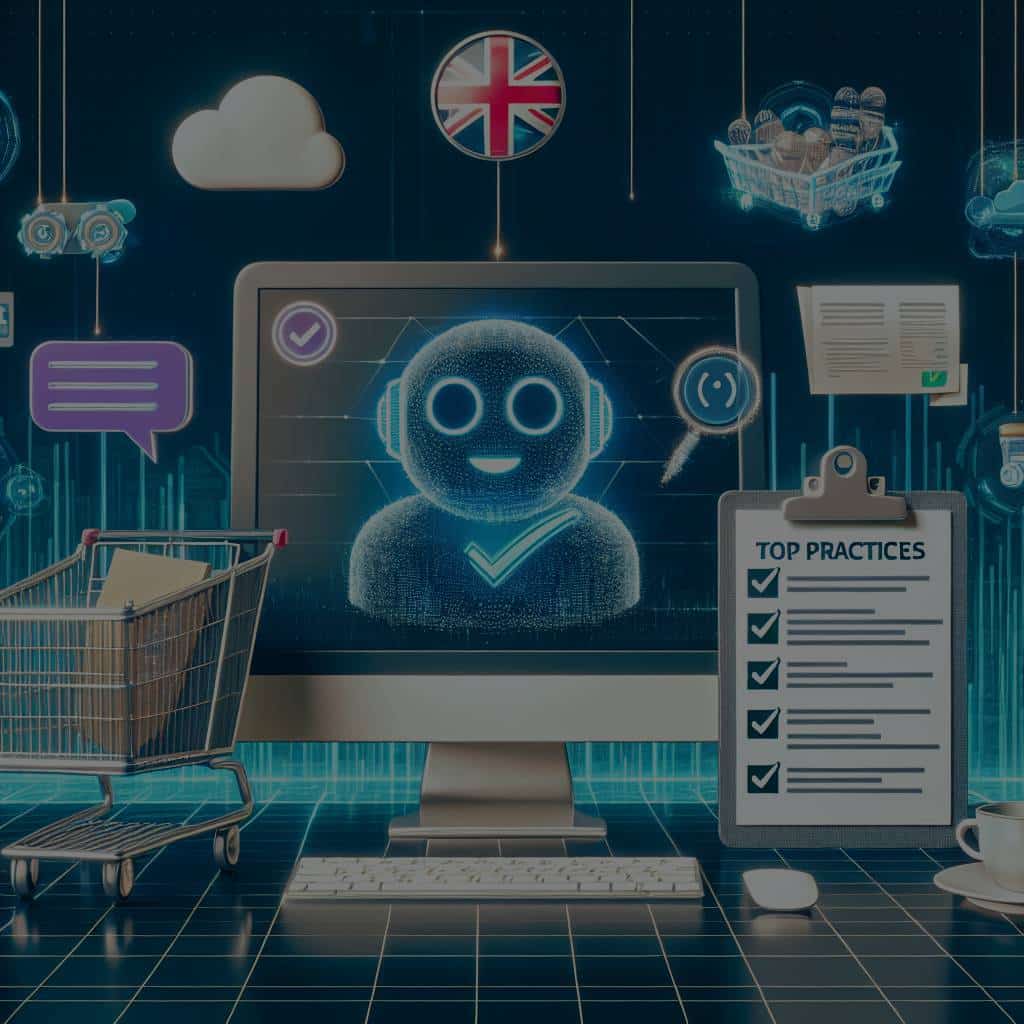What Are the Best Customer Service Chatbot Practices for UK Online Retailers?

Customer service has evolved significantly over the years. The traditional phone calls and face-to-face conversations have given way to chatbots, support bots, and AI-driven customer service. These are fast becoming the norm, especially within the retail sector. For online retailers, in particular, chatbots can improve the customer experience, drive user engagement, and streamline customer service processes. However, your business must implement best practices to ensure that your chatbot meets your customers’ expectations and enhances their shopping experience.
The Rising Importance of Chatbots in Customer Service
Before we delve deeper into the best practices, it’s crucial to understand the role and importance of chatbots in customer service. Thanks to the exponential growth in digital marketing and ecommerce, the way businesses interact with their customers has changed dramatically. Today, customers expect immediate responses to their queries, personalised shopping experiences, and round-the-clock support.
In parallel : What Are the Effective Approaches to Sustainable Fashion in the UK Market?
Chatbots are thus a vital asset for any ecommerce business. These AI-driven, automated chatting systems can interact with customers, provide instant responses to their queries, and offer support 24/7. With a well-programmed chatbot, online retailers can answer frequently asked questions instantly, guide customers through their shopping journeys, and even upsell products.
Effective Chatbot Communication for Improved Customer Experience
The way your chatbot communicates with customers significantly affects their overall experience. While the bot should mimic human interaction, it’s crucial to remember that it isn’t human. Avoid trying to make it sound overly human. Instead, emphasize its automated nature, but ensure it provides accurate, helpful, and friendly responses.
Also to discover : How Can UK Independent Bookshops Thrive in the Age of Digital E-readers?
Engage your customers by incorporating their names into the conversation, offering a personalised approach. Additionally, ensure your chatbot can understand and interpret common linguistic nuances and slang. The bot should further be capable of recognizing and managing multiple questions in a single user input.
Lastly, always give your customers an option to switch from the bot to a human customer service representative. Sometimes, people prefer interacting with a real person, especially when dealing with complex issues.
Chatbots as a Marketing Tool for your Business
Besides customer service, chatbots can also be a powerful marketing tool. They can help collect user data, understand customer behaviour, and provide personalised product recommendations. For instance, a chatbot can ask users about their preferences, and based on their responses, suggest suitable products. This not only enhances the user experience but also upsells your products and increases sales.
Moreover, chatbots can also help with marketing campaigns and surveys. They can ask customers for feedback, making them feel valued and involved in your business. By analysing the collected data, online retailers can improve their services and products, and make informed business decisions.
The Role of Chatbots in Social Media Customer Service
Social media platforms have become a critical customer service channel. Customers often reach out to businesses via social media for support or inquiries. Thus, integrating chatbots into your social media strategy can significantly improve your customer service.
With a social media chatbot, you can provide instant responses, reducing response time and keeping customers satisfied. It can also handle multiple queries simultaneously, allowing you to cater to a larger audience and improve efficiency.
However, similar to your website chatbot, the social media bot should also offer the option to switch to human support if required. This ensures that customers can get help with complicated issues that the bot might not be equipped to handle.
Ensuring Chatbot Security for Customer Trust and Loyalty
Finally, an essential practice in using chatbots for customer service is ensuring data privacy and security. Customers share personal information with chatbots, and it’s imperative to ensure this data is protected. A secure, trustworthy chatbot will not only comply with data protection laws but also win customer trust and loyalty.
Regularly test and update your chatbot to address potential security vulnerabilities. Make clear to your customers what data the chatbot collects and how you use it. Always ask for their consent before collecting any personal data.
In conclusion, chatbots have emerged as a crucial component in customer service, offering instant support, personalised experiences, and useful insights into customer behaviour. However, to leverage their full potential, online retailers should prioritise effective communication, customer involvement, integration with social media, and security. By following these practices, you can ensure your chatbot provides exemplary customer service, leading to increased customer satisfaction and business growth.
Maximising the Potential of Chatbots with Natural Language Processing
In the world of customer service, it’s not just what you say, but how you say it. This applies to chatbots too. Natural language processing (NLP) is a branch of artificial intelligence that helps chatbots understand and respond to user inputs in a more human-like way. It enables the bot to comprehend slang, local dialects, misspellings, and more. This is particularly useful for online retailers catering to a diverse customer base in the UK.
The integration of NLP can make your service chatbot more effective and versatile. For instance, instead of programmed responses, your chatbot can handle open-ended questions and provide more personalised responses. It can understand customer sentiments and react appropriately, enhancing the overall customer experience.
However, implementing NLP in your chatbot involves continuous learning and updating. Your chatbot should be trained with a diverse range of phrases and expressions used by your customers. Regular updates are necessary to ensure it stays relevant, especially with the evolving language and slang.
Moreover, a well-implemented NLP chatbot can offer benefits beyond customer support. It can help in conversational commerce, encouraging customers to engage more and explore your products or services. It can also provide valuable insights into customer behaviour and preferences, helping you tailor your strategies accordingly.
Utilising Chatbots on Facebook Messenger for Enhanced Customer Support
Facebook Messenger is one of the most widely used platforms for online communication, making it a prime space for customer service. With about 1.3 billion users worldwide, implementing a chatbot on Facebook Messenger can greatly extend your reach and enhance your customer support.
A Facebook Messenger chatbot can provide real-time support to your customers. It can answer queries, resolve issues, and even handle transactions. Moreover, it can proactively reach out to customers, sending updates, offers, and reminders. This helps in boosting customer engagement and loyalty.
However, to make the most out of your Messenger chatbot, it’s necessary to follow some best practices. Personalisation is key – use the customer’s name and offer tailored responses. Make sure the chatbot is quick and efficient, as customers expect immediate responses on Messenger.
Also, integrate your chatbot with your customer support system. If the bot can’t resolve an issue, it should seamlessly transfer the case to a human agent. Lastly, ensure your chatbot is secure and respects user privacy. Transparency about data usage is crucial to build trust.
In Summary: The Future of Customer Service Lies in Chatbots
Chatbots have become an indispensable part of customer service for UK online retailers. They offer an effective solution to the rising customer expectations for instant, personalised support. When implemented correctly, chatbots can not only enhance the customer experience but also provide valuable customer insights and boost sales.
However, the success of your chatbot depends largely on how well it communicates, its integration with platforms like Facebook Messenger, and how secure it is. Businesses should also utilise artificial intelligence technologies like natural language processing to maximise their chatbot’s potential.
The adoption of chatbots in customer service is not just a fleeting trend – it’s a significant shift fuelled by technological advancements and changing customer behaviour. By embracing this change and implementing best practices, online retailers can ensure they stay competitive and continue to deliver exceptional customer service. A well-implemented chatbot can lead to high customer satisfaction, increasing loyalty and driving business growth.
